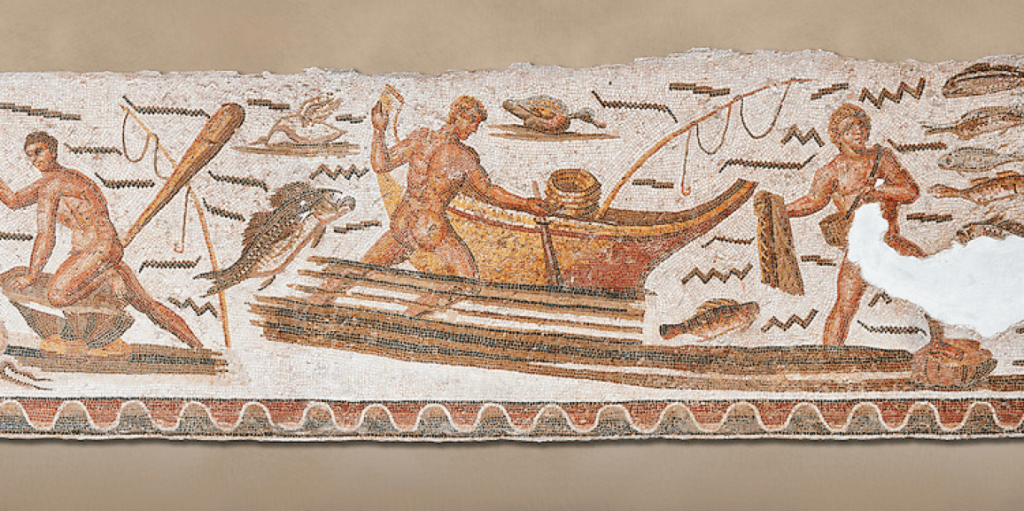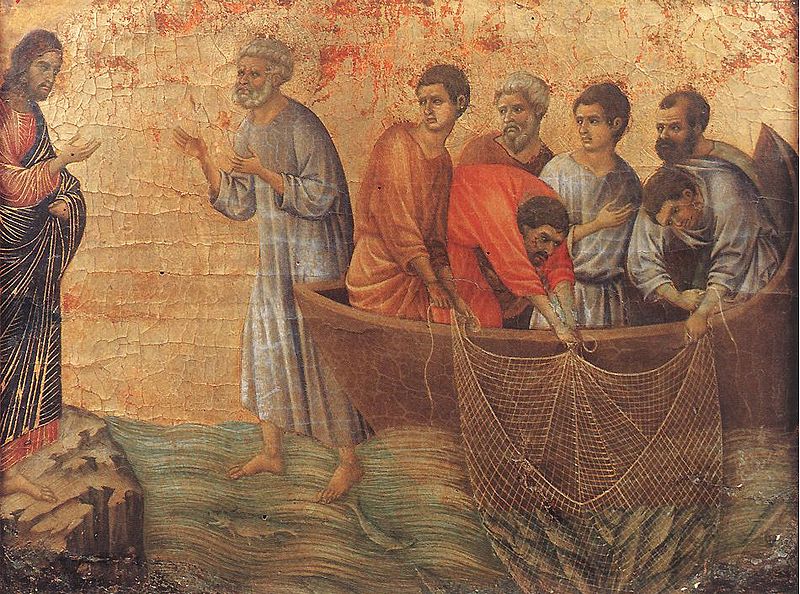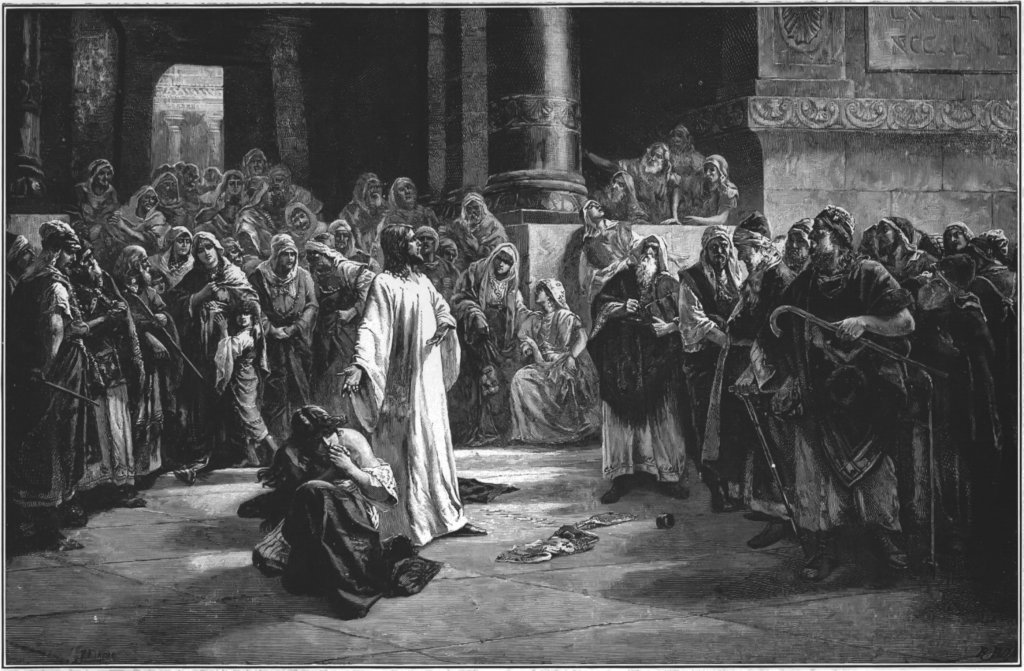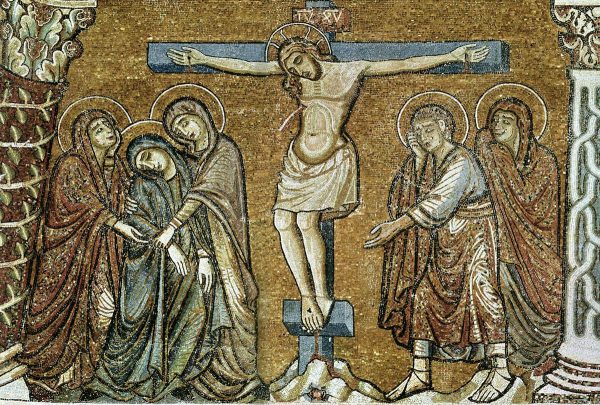Ordinary People

It’s striking to find out that two of the reputed “Pillars” (Galatians 2:9) of the church (Peter and John) were “uneducated and ordinary men ” or “ἄνθρωποι ἀγράμματοί εἰσιν καὶ ἰδιῶται” (Acts 4:13). The word most often translated “uneducated, “unlearned,” or “unschooled” (ἀγράμματοί) means literally “without letters,” i.e. “illiterate.” The word for “ordinary,” “untrained,” or “common” (ἰδιῶται) bears the connotation of “non-professional” – in this case not a part of the Jewish religious leadership guild. Tyndale translated the word “layman.” We know that 4 of the 12 Apostles were fishermen, 1 was a political revolutionary, 1 a tax collector, and 1 a thief. Scripture gives no further information on the remaining five. All were chosen after Jesus spent an entire night in prayer. (Luke 6:12) God chose “uneducated and common men” for a reason.
In this passage, Peter and John had been arrested by the religious leaders for preaching the resurrection of Jesus following the healing of a lame beggar at the entrance to the Temple. The following day they were questioned by the High Priest, Scribes and Elders regarding the miracle. Peter’s response led them to conclude that he was an “uneducated” “commoner” – in obvious distinction to their religious pedigree. As to whether Peter and John were, strictly speaking, “illiterate” is open to discussion, but clearly they were not esteemed in their culture as educated or elite. (According to Jewish scholar Meir Bar-Ilan, literacy in 1st Century Palestine was near 3%. “Common people” would have likely fallen into the 97th percentile.)
The “untimely” born Apostle Paul (1 Corinthians 15:8) was clearly an exception to the “uneducated” fishermen. Paul was highly educated as far as the Torah was concerned. (Galatians 1:14) But it is interesting to note that Paul’s precocious understanding of the Torah did not lead him to a knowledge of Jesus as the Messiah. On the contrary, Paul’s superior wisdom led him to persecute Jesus and by extension His body, the Church. In fact, a conspicuous tragedy in the gospels is that the vast majority of the Jewish religious elite never recognized the Messiah Jesus, though He was the fulfillment of their devotion and pious study, “You search the Scriptures because you think that in them you have eternal life; and it is they that bear witness about me.” (John 5:39) It is clear that the Apostle Paul was able to leverage his education as a tool to reach his Jewish brethren, “he powerfully refuted the Jews in public, demonstrating by the Scriptures that Jesus was the Christ.” (Acts 18:28) and to articulate the gospel to both Jew and Gentile.

Peter and John did not have any religious academic credentials. They were common, ordinary men. That’s the point. God didn’t need academic credentials; all He needed were people willing to follow. God would qualify the “unqualified.” God decided to use a group outside of the educated or religious establishment to be His core disciples.
God’s pattern of using “ordinary people” is common. Paul states as such in his letter to the Corinthians, “For consider your calling, brothers: not many of you were wise according to worldly standards, not many were powerful, not many were of noble birth. But God chose what is foolish in the world to shame the wise; God chose what is weak in the world to shame the strong; God chose what is low and despised in the world, even things that are not, to bring to nothing things that are,” (1 Corinthians 1:26-28)
The second part of Acts 4:13 is telling, “And they recognized that they had been with Jesus.” The religious leaders perceived that Peter and John were “unlearned” men as well as the fact that “they had been with Jesus.” This second sentence in 4:13 gives us the answer to the Christian “credentials” to serve the Master. Put plainly, their qualification was rooted in their intimacy with Jesus and not in their meticulous study of Torah, Talmud or Halakha. Jesus didn’t send the Apostles to a religious Yeshiva. He asked them to follow Him.
The “common” and “untrained” status of Peter and John should be an important word for the church today. First, a great word of encouragement to those who believe God can not use them based on their personal inadequacies. Lack of formal training, difficulty speaking, appearance, lack of confidence, lack of eloquence, accent, social status, etc. are not liabilities in the Kingdom! Our lack of human qualifications can actually be our greatest asset. When you have no special education, name or appearance, you are forced to trust entirely on Jesus, Who becomes your instant and most powerful qualifier. Any man or woman who has spent precious time alone with Jesus will have an infinitely greater affect on a congregation (or unbelievers) than the person who gets into the pulpit and has nothing to offer but his Ph.D., charisma and knowledge of classical Greek. The church needs the man or woman who has been with Jesus! Ultimately Jesus is the school. He is the education.
Second, Peter’s “untrained” status should be a strong word of caution to churches that often exclude “uneducated” and “untrained” people from leadership. A large percentage of churches in the US would exclude Peter and John from leadership consideration based on their lack of formal education. What a disservice to His Kingdom when we create glass ceilings for leadership. How many men and women have been anointed by the Holy Spirit to edify the body of Christ but have been excluded based on their lack of Greek, Hebrew, church history and systematic theology?
After 8 years of university education I thought I had quite a lot to offer the body of Christ. My first pastoral post was situated in a church in rural North Carolina. I was eager to use the tools I had acquired over many years of education. Most of the church worked in agriculture, textile, trucking, manufacturing, etc. Within a few months I met a former farmer and truck driver, Ralph Campbell. I’m not sure if Ralph went to high school, but he knew Jesus in a way that I had never seen. That intimacy with Christ produced a power and conviction that is rarely to be found in the pulpits of the elite. I understood immediately that there were “credentials” that could only be imparted to people who had spent time with Jesus. (Acts 4:13). These credentials are not imparted by an academy, but by the Holy Spirit Himself. These are the people God uses to change the hearts of men.
The point here is not to disparage religious education. God imparts wisdom through the gift of teaching and preaching, through university and seminary. These can be vehicles for spiritual growth and maturity. As stated above, Paul was a member of the “religious establishment” and his articulation of the gospel was unparalleled. At the same time we should remember that God often chooses the “unqualified,” the “untrained,” and the “nobodies” of the world. God often works outside of our structured religious forms. The “uneducated” are less likely to lean on their seminary “tool belt.” They tend to bring glory to God alone when people marvel at how He could use so “weak” a vessel.
The Church should not diminish the role of formal education but should acknowledge that education is not a spiritual credential in itself. It is God’s calling that is the qualifier and ultimately the Holy Spirit is the Teacher. (John 14:26) God does not only call the Pauls of the world. He calls the Peters, James’ and Johns as well. The supreme qualification is God’s voice, His touch, His empowerment, His life.
Article by Sky Cline



